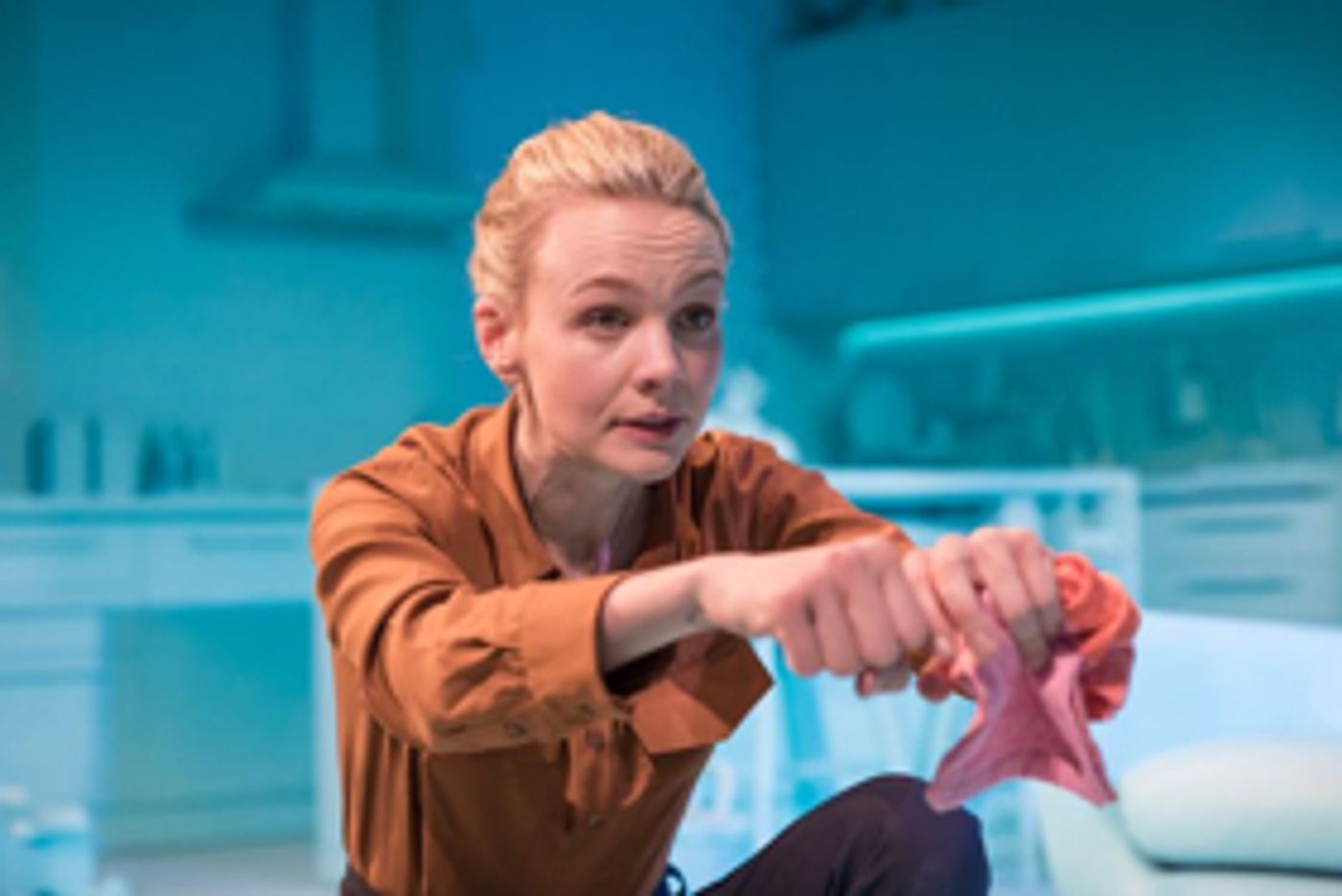Review: GIRLS & BOYS, Royal Court

![]()
"It just seems to be a thing that we do, this incomprehensible violence thing." So says the narrator of Dennis Kelly's new one-woman play, performed in a staggering tour-de-force from Carey Mulligan. She's been reflecting on an American mass shooting (and the fact that yet another has taken place just this week is sickening) and wondering whether violence is innate, and if so, whether it's a particularly male impulse.
That's at the darker end of the spectrum of this terrifically engaging 90-minute monologue; with typical tonal skill, Kelly balances humour and heart, the profane and the profound. But it's all in the hands of Mulligan, and straightaway she gets everyone on side - her cheerfully colloquial, slightly Cockney delivery with "Can you believe it?" type asides immediately inviting us into her tale.
Her unnamed protagonist begins as a lost soul, wandering Europe. She falls in love with a guy who staunchly defends the integrity of an easyJet queue in the face of wily models - one of the most enjoyable meet-cutes ever committed to drama. The couple marry and have children, but domestic bliss later darkens into something unspeakable.
Mulligan's character is encouraged to pursue her dream of working in documentary production, and here Kelly makes some searing points about the way entry to the media is rigged for the well-moneyed (who else can afford several years of working for free to gain "experience"?) and the belief instilled by privilege, as well as sharp observations about pervasive sexism in the workplace.
Yet unlike Mulligan's other current project, David Hare's TV drama Collateral, there's no sense of straining for the zeitgeist. Yes, Kelly's piece is rivetingly topical - insightful about unequal systems, vital viewing in the #MeToo era, and rich with understanding for both victims and perpetrators of violence. But it weaves such a beguiling storytelling spell that in the moment, all you care about is this particular handful of struggling people.
His central character is a winning creation: fierce, brave, proudly working-class, wittily foul-mouthed, touchingly awed by her professional success, believably affectionate towards and frustrated with her family. Mulligan brings every facet to twinkling life, making her an instant friend - if one with plenty of spikiness.
She's certainly not a saint, casting off her husband's female pal for no good reason other than...well, "No". Mulligan's wry, eloquent delivery of this one word is priceless. But those fallible moments only make her all the more real, and lovable.
The production is mainly Mulligan standing in a blank box, speaking directly to the audience - and riveting throughout thanks to smart pacing from director Lyndsey Turner - but for several sections Es Devlin's design opens out into a chic flat, in which Mulligan mimes playing with her children.
Through her oft-exasperated mothering, we get to know them: the overly sensitive daughter, the oblivious son. Their games weave into Kelly's central theme of violence - why is it that while the former seeks to create, the latter always wants to destroy? What is the root of aggression, and of toxic masculinity? And how does domestic behaviour parallel wider forms of brutality?
Later in the piece, the narrator's evocation of these memories becomes significantly weighted, lending stirring texture to the very act of storytelling. That's supported visually by the use of colour: an icy mint-blue wash juxtaposed with vivid splashes of red and orange. Past and present colliding, a dreamlike, slightly queasy, ominous clash.
Violence, too, pervades the language - this being Kelly, imaginatively and sometimes humorously graphic. Of the queue-jumping model, Mulligan's character fantasises about cutting her into tiny pieces and feeding her "to an ant-eater". In a tanking job interview, she says: "I'll keep banging my head against the wall until the wall breaks or my neck is a bloody stump." When a posh male colleague speaks over her, she regroups by thinking "Up you in your f-ing balls".
But violence here is ultimately about control - particularly a male need to control, to dominate. Kelly provides a strong psychological study, but one that hits the gut as much as the brain. I've seldom felt such a sense of dread in the theatre, such a sickening worry for fictional characters.
There are times when Mulligan's narrator catches herself, struggles to continue with the same candour. We are right there with her. This is impeccably constructed theatre that feels almost unbearably real, and so very human. It sets a high bar for new writing in 2018.
Girls & Boys at the Royal Court until 17 March
Photo credit: Marc Brenner
Reader Reviews
Videos

